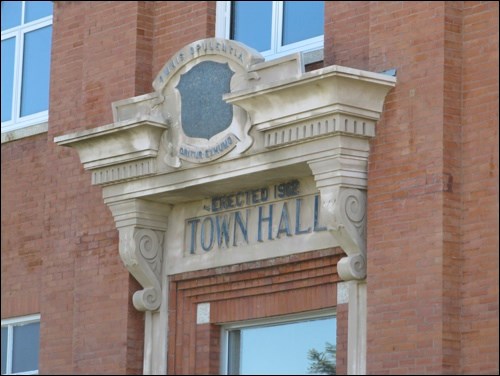The Town of Battleford is hoping to avoid rising energy costs by signing with Connect Energy, rather than extend its contract with SaskEnergy.
The Town's current rate is 3.45 per gigajoule, but the Saskatchewan Rate Review Panel recently recommended SaskEnergy's request for a 26.7 per cent commodity rate increase.
Town Administrator Sheryl Ballendine said Connect Energy indicated they have been buying gas for under the $5 mark, and in order to get in on this price council would have to decide by June 26 if they were interested.
Alternatively, the Town could extend their agreement with SaskEnergy, from Oct. 31, at a fixed rate of $5.20, or perhaps lower.
Council was interested in Connect Energy's proposal and voted, not unanimously, to sign with the independent natural gas supplier for five years.
Ballendine said it's like the stock market, where you "try to get in at a decent level and ride the wave for a few years."
She added, "We were in with this company under another name many years ago and did very well. We locked in for five years; we were under the three dollar mark and it went crazy."
Rates have been as high as $8.51/GJ in the last several years.
Councillor David George said Connect's offer was attractive.
"Unless the market goes flat again it's probably a pretty good price," he said, however he said signing for three years only could be risky.
"I think five years might be the way to go, and the reason I say that is because we've just gone through a period of time where gas prices have come down exponentially and it's almost unbelievable the energy sector got hit as hard as it did," he said. "But it's energy. Guess what, it goes up. Are we going to hit that eight dollars again? In the next five years, it's very possible."
Councillor Ames Leslie said, "If we have a mild winter the prices are going to go down. Half the increase in prices we're seeing is because they had to buy energy from neighbouring companies to supply Saskatchewan. That's where we see the big jump in this 26-27 per cent. It wasn't based on the trading of gas.
Shelley Boutin-Gervais opposed the motion, saying "I think we should support the province we're living in."
The Saskatchewan Rate Review Panel announced June 16 it was recommending the provincial government approve SaskEnergy's application to increase the natural gas commodity rate charged to customers. The proposed increase from $3.82/GJ to $4.84/GJ would be effective July 1.
The rate request was based on several factors, including eliminating the balance in SaskEnergy's Gas Cost Variance Account (the amount that consumers had underpaid because of rising gas prices since the last rate application took effect), and forecasted gas costs and projected sales volumes from 2014 to 2016.
The panel said the recommended increase would enable SaskEnergy to discharge the projected $34 million deficit in its Gas Cost Variance Account over 24 months, spreading the cost to consumers over a longer period of time, and providing greater stability.
The panel was concerned that the deficit in the GCVA was allowed to grow to $34 million and suggested SaskEnergy consider a policy that would trigger a rate application if the surplus or deficit in the GCVA exceeds $20 million.
In its market update provided to Battleford councillors, Connect Energy said the North American natural gas market has just come through an extraordinary price collapse. The last five years have been the only period of time since the market was deregulated in the late 1980s when a long-term fixed price agreement did not perform well for customers compared to short term.
It stated the unexpected, dramatic drop in gas prices over the last year years was due mainly to a combination of the economy recession in the United States reducing the demand for natural gas and new drilling technology.
However, the report continued, an extremely cold winter across the continent and a massive drop in the number of rigs drilling for natural gas brought the low pricing environment to an abrupt end.
Going forward, Connect Energy sees a greater risk of significant price spikes due to a record draw on gas inventories this past winter, creating unprecedented demand to refill before next winter, as well as a growing demand for gas, especially for power generation, and, thirdly, a flattening of declining supply.
When looking at all the factors, said the report, there is a greater chance of the market going up instead of down.



